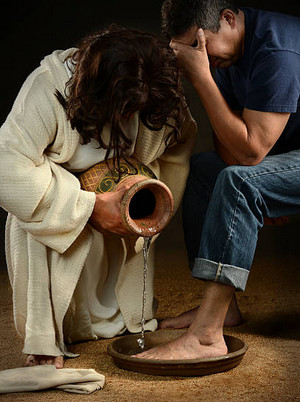The limitations of life are everywhere around us. They enter into the lives of the young and the healthy, creating an atmosphere of resentment and frustration. They enter into the lives of the sick and suffering, the poor and the hungering, spawning a sense of hopelessness and despair. They come into our own lives and unsettle us and our plans for the future. We all protest against these limitations and the restrictions they place upon us. Our protest is real and becomes significant because we experience it first-hand.
 But what of the lives of our brothers and sisters across the planet?
But what of the lives of our brothers and sisters across the planet?
For Catholics across the U.S., the month of October is dedicated as "National Respect Life Month." During this time we are reminded of the sacredness of every human person from conception to death, because it is never enough just to love God. We must love one another as well. But loving one another is also not enough. We are expected to give our lives for one another. We are expected - and commanded - to love each other with the love and compassion of God Himself. This is the love that heals.
The task of the healer is to foster connections that go beyond family and local community. The healer breaks down the barriers between people, between races and nations. The healer shapes new connections across the chasm of misunderstanding and hatred, across prejudice or revenge. The healer is a reflection of Jesus, the Healer, who attempted to connect people across the lines of their enmities, their institutional differences and their ideological divisions.
We are called to be such healers. We have been chosen by name, and called to create an environment in which healing takes place, where one is forgiven and reconciled, where concern is fostered, where one feels a sense of belonging.
At her very best, the Church is this compassionate, loving, all-embracing and all-inclusive community of believers. At her very worst she appears to be an autocratic institution, bent on controlling power and maintaining the status quo. Most of the time, we find ourselves somewhere in the middle - struggling to disengage from that which breaks us apart to become that which we are all called to be.
Many years ago, there was a song parody by humorist Tom Lehrer, entitled "National Brotherhood Week." Throughout the verses, Lehrer takes great pains to point out all of the differences, prejudices and hatreds that people of different races, religions and political bent have for one another. But the refrain glorifies the efforts that they all make to "come together" during National Brotherhood Week.
Lehrer ends the parody with two lines:
"It's only for a week so have no fear;
Be grateful that it doesn't last the whole year!"
There is a lesson to be learned here. Respecting life is something we should be celebrating and dedicating ourselves to every day, all year long. It's almost embarrassing to see how much time, effort and energy we waste arguing over proper decorum, or putting labels on one another, pointing out the limitations of those with differing ideologies. There is just too much in this world needs to be healed.
Human life is indeed surrounded with injustice and limitations. A culture of life - where every life is protected, respected and celebrated - begins with a personal decision to respect the dignity of others. We must bear that culture to others through our words and actions.
Only when we realize that our call to faith and hope must include the sacredness of all life does "Respect Life" make any sense.






